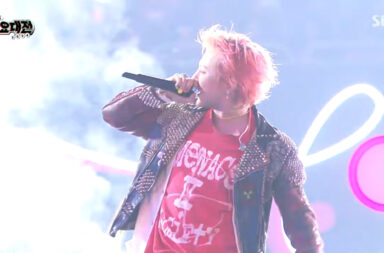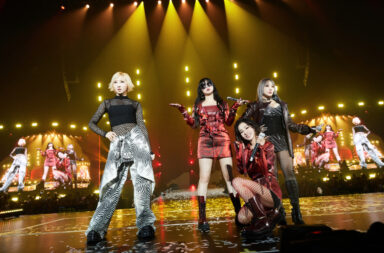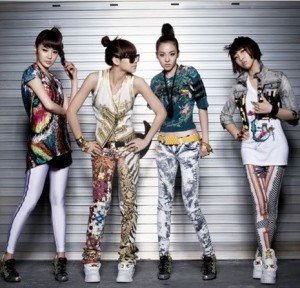 K-pop is an industry run by men. From the CEOs of the mega-corporations, to those who control the record labels, to those who control the music, to those who control the artistic direction, to those who control the talent, K-pop is largely produced by a majority of men. In such a male-dominated industry, how is it that there exists acts which tend to defy the patriarchic conventions of men? With the likes of 2NE1 and miss A, this relatively new concept of the strong, independent woman carries with it many overtones of female empowerment, but nevertheless, it’s still one which is essentially designed by men.
K-pop is an industry run by men. From the CEOs of the mega-corporations, to those who control the record labels, to those who control the music, to those who control the artistic direction, to those who control the talent, K-pop is largely produced by a majority of men. In such a male-dominated industry, how is it that there exists acts which tend to defy the patriarchic conventions of men? With the likes of 2NE1 and miss A, this relatively new concept of the strong, independent woman carries with it many overtones of female empowerment, but nevertheless, it’s still one which is essentially designed by men.
While 2NE1 is mostly credited with ushering in the wave of fierce girl groups that we see today, the concept of loud and proud girl power has been around long before. Female hip hop veterans like Tasha and Lexy have been utilizing rap to give voice to female empowerment way before 2NE1 came along. Nevertheless, credit should be given where it is deserved. 2NE1 brought girl power into the mainstream and carved out a huge niche which allowed for female idols to embrace a stronger, more positive image for women. Through the use of hip hop and R&B genres which have been popularized in the American tradition for their ability to give voice to the disempowered, many female acts have established themselves through bold and fierce concepts. However, under the guise of female empowerment, not all of the girl power artists directly hold true to this concept. In an industry essentially controlled by males, what type of messages of female empowerment are female idols (which excludes long-time artists Tasha and Lexy) allowed to transmit through the medium of mainstream music? As we’ll see, there are several tiers, ranging from pretentious to enlightening, in their definitions of girl power.



On the bottom tier, we have those artists who qualify through their concept but lack actual substance. On the surface level, they are strong and fierce, but their lyrical content reveals them to be shallow or even false portrayals of girl power. EvoL, Spica, and D-Unit embody very masculine images in their concepts, yet they fall short of expressing any real message of female empowerment in their lyrics. Images of girls firebombing a tank in EvoL’s “We’re a Bit Different,” playing with guns in Spica’s “Russian Roulette,” and running a black market weapons operation(?) in D-Unit’s recent release, “Luv Me,” are fiery examples of concepts which challenge the traditional role of women. However, as detailed in my recent article, EvoL’s rebellious concept suffers from its lyrical dearth and devolves into a chant of “dance floor move it now.” Similarly, Spica’s reference to gunplay is simply a metaphor about risking it all to preserve a failing relationship. While D-Unit’s masculine posturing and bit of gender role reversal in “Luv Me” is feisty and fresh, the song speaks of nothing more than making a guy fall in love with them. As well done and refreshing as these concepts are, they squelch the opportunity of expressing any real notion of female empowerment in their song’s message.
 At the rock bottom of faux-girl power, there are songs whose messages actually favor the disempowerment of women, yet they are disguised as fierce or uplifting concepts. As Seoulbeats writer Maria mentioned in her review of Ailee’s “I’ll Show You,” the message in the MV is downright pathetic. Ailee transforms from a girl who is used and ignored into one who becomes popular and liked by merely changing her looks. And instead of moving on to a better guy, she goes running back to the guy who’s the perpetrator of her initial misery! The lyrics are also misdirected in their vision of the narrator’s redemption.
At the rock bottom of faux-girl power, there are songs whose messages actually favor the disempowerment of women, yet they are disguised as fierce or uplifting concepts. As Seoulbeats writer Maria mentioned in her review of Ailee’s “I’ll Show You,” the message in the MV is downright pathetic. Ailee transforms from a girl who is used and ignored into one who becomes popular and liked by merely changing her looks. And instead of moving on to a better guy, she goes running back to the guy who’s the perpetrator of her initial misery! The lyrics are also misdirected in their vision of the narrator’s redemption.
I will meet a hotter guy and I will show you for sure
A me who is happier than you.
In reality, getting with someone better looking to spite a former love interest isn’t an empowering or even a satisfying solution to the issue at hand. The emphasis on changing one’s looks taking precedence over realizing one’s inner beauty and self-confidence is a horrible message to females who tend to fall into the belief that their outward beauty should be “upgraded” to make up for the qualities they lack on the inside. Although the concept isn’t screaming of fierce girl power, the song’s uplifting melody, Ailee’s powerhouse vocals, and her stunning charisma entitles her to be an empowered figure. However, don’t be fooled by her strong presence when the song’s message is highly disconcerting.
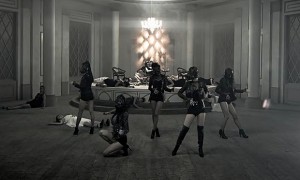 Along the same lines, Exid’s MV for “Every Night” screams of girl power with their chemistry-induced assault of a stoic womanizer. But despite the MV’s symbolic message of restoring one’s dignity through hateful vengeance, the lyrics provide a direct contrast through describing the narrator’s acceptance of and consent to becoming a former lover’s “booty call,” citing the narrator’s inability to live without him. Although the lyrics are probably meant to be sweet, the idea of a woman agreeing to such terms in a relationship is utterly degrading.
Along the same lines, Exid’s MV for “Every Night” screams of girl power with their chemistry-induced assault of a stoic womanizer. But despite the MV’s symbolic message of restoring one’s dignity through hateful vengeance, the lyrics provide a direct contrast through describing the narrator’s acceptance of and consent to becoming a former lover’s “booty call,” citing the narrator’s inability to live without him. Although the lyrics are probably meant to be sweet, the idea of a woman agreeing to such terms in a relationship is utterly degrading.
Next we have the middle tier which is characterized by fierce concepts combined with messages which goes beyond longing for a man. In fact, the songs tend to share a theme of wanting to separate from men, yet their sense of empowerment is still highly dependent on their relationship to men. This male-dependent definition of girl power is a step up from the male-subservient examples of the bottom tier, yet the lack of inner resolve in the lyrics relegates the following examples into this in-between tier.
 Exid transitions us into the middle tier with their debut song “Whoz that Girl,” which speaks of a woman’s decision to discontinue a disingenuous relationship by telling her lover to pursue the other woman as she bids him farewell. The MV is filled with vivid representations of girl power, including a scene of the members running chain saws through several innocent mannequins. The girls’ lyrical disdain, visual rampage, and fascinations of sabotage against their former lover are indirect expressions of them coping with the sting of failed relationships. While these displays of tenacity seem to be merely overcompensation for the pain they are feeling, it’s nevertheless a far more dignified response than the pitiful relapses common of the lower tier.
Exid transitions us into the middle tier with their debut song “Whoz that Girl,” which speaks of a woman’s decision to discontinue a disingenuous relationship by telling her lover to pursue the other woman as she bids him farewell. The MV is filled with vivid representations of girl power, including a scene of the members running chain saws through several innocent mannequins. The girls’ lyrical disdain, visual rampage, and fascinations of sabotage against their former lover are indirect expressions of them coping with the sting of failed relationships. While these displays of tenacity seem to be merely overcompensation for the pain they are feeling, it’s nevertheless a far more dignified response than the pitiful relapses common of the lower tier.
Miss $ expands on the notion of coping and moving forward with a failed relationship through the use of internal dialogue in their latest release, “Good Night.”
What are you doing up at this late hour?
I’m thinking of him again in this late time.
Why am I just crying like fool? It’s all water under the bridge.
What difference does it make?
Why do I say nothing?
Be sensible fool.
Please, good night for now.
 The feisty artistry of the MV corresponds very accordingly with the use of internal dialogue in allowing the narrator to introduce an empowering perspective. The narrative runs very similar to that of previously mentioned songs in that the woman is longing for a former lover, but the message of “Good Night” proves to be quite the antithesis to “Every Night” in that instead of crawling back to the ex through his terms, Miss $ plays the nurturing ally and tells the girl to be sensible and to just go to sleep.
The feisty artistry of the MV corresponds very accordingly with the use of internal dialogue in allowing the narrator to introduce an empowering perspective. The narrative runs very similar to that of previously mentioned songs in that the woman is longing for a former lover, but the message of “Good Night” proves to be quite the antithesis to “Every Night” in that instead of crawling back to the ex through his terms, Miss $ plays the nurturing ally and tells the girl to be sensible and to just go to sleep.
Filing into the upper tier are songs which are not only feisty, but also indignant to the mistreatment of women at the hands of misbehaving men. These women are willing to completely detach themselves from the likes of male chauvinists and they aren’t afraid to rub it in their faces before they do so. However, since this notion of female empowerment is still defined through the woman’s relationship to a man, it prevents these concepts from reaching the heights of the very top tier.
There are quite a few entries in this tier which fall closely to one another through the theme of a woman’s firm determination towards discontinuing a relationship with an unfaithful, uncaring, or outright abusive guy. 2NE1’s “I Don’t Care,” “Go Away,” and “Hate You” stand out for their original stage performances. “I Don’t Care” was very memorable for its finger-wag dance that went very well with the repeating chorus, creating a uniform display of solidarity against the wrongdoings of a womanizer. “Go Away” creates the same effect during the fist pumping and chanting of “go away.” The MV for “Go Away” brought up the issue of domestic violence and a woman’s resolve to free herself from the man’s entrapment (even if it’s through murderous speed racing carnage?). The song’s live performances contains a brilliantly choreographed rotating party scene which features a poor backup dancer who gets either shoved, slapped, or hit in the face by a cup of confetti (at 1:57).
[youtube http://www.youtube.com/watch?v=LY5e_XounIU&w=600&h=360]As if that wasn’t proof enough that male backup dancers for 2NE1 suffer the worst abuse, some are tied up in a chair, gagged by duct tape, and kicked around the stage in their live performances of “Hate You.”
[youtube http://www.youtube.com/watch?v=t9f6jrARLKs&w=600&h=360]As for 2NE1’s boast tracks in which they exude a ton of sexy confidence and literally sing about how they are the best and how nobody else can compare to them, I’m going to omit those entries from the spectrum because though these concepts can be highly empowering, they’re not really anchored in the basis of reality. That is, their contents are so abruptly absurd that it’s quite a stretch to interpret them as of actual substance. Sorry, Blackjacks!
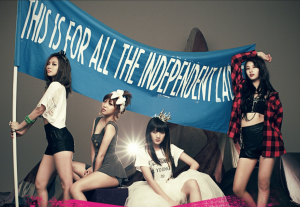 It is, nonetheless, important to consider 2NE1’s softer tracks because they display a vulnerable side to 2NE1 which contrasts heavily with their more fiery personas. “It Hurts,” “Lonely,” and “I Love You” expresses a woman’s longing for a man who does not reciprocate her strong feelings for him. Similarly, miss A’s “Breathe” and “Touch” display a vulnerability that is uncommon to their upper tier songs, “Goodbye Baby” and “I Don’t Need a Man,” which assert their disregard towards materialistically chivalrous and good for nothing men. The need for 2NE1 and miss A to balance their fierce personalities with softer ones speaks of the market in which they cater to. In order to branch out and connect with a larger fan base, they must occasionally differentiate their style to appeal to those who prefer a woman’s gentler side. This shows that they’re manufactured primarily to make money, although empowering women may be a secondary objective.
It is, nonetheless, important to consider 2NE1’s softer tracks because they display a vulnerable side to 2NE1 which contrasts heavily with their more fiery personas. “It Hurts,” “Lonely,” and “I Love You” expresses a woman’s longing for a man who does not reciprocate her strong feelings for him. Similarly, miss A’s “Breathe” and “Touch” display a vulnerability that is uncommon to their upper tier songs, “Goodbye Baby” and “I Don’t Need a Man,” which assert their disregard towards materialistically chivalrous and good for nothing men. The need for 2NE1 and miss A to balance their fierce personalities with softer ones speaks of the market in which they cater to. In order to branch out and connect with a larger fan base, they must occasionally differentiate their style to appeal to those who prefer a woman’s gentler side. This shows that they’re manufactured primarily to make money, although empowering women may be a secondary objective.
Honorable mentions on the upper tier for their sassy determination and willingness to break free from the grips of a hurtful relationship include: Miryo’s “Dirty” and NS Yoon-G’s “The Reason I Became a Witch.”
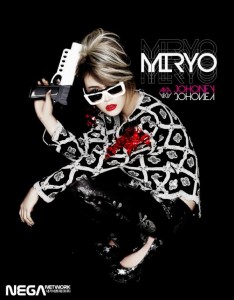 Finally, we’ve arrived at the uppermost tier of female empowerment. Unlike lower tiers, these works directly address, challenge (keyword), and even reverse the notions of women being dependent, subservient, or entrapped by men. While some of these examples may bring up the idea of a woman’s empowerment through her relationship to a man, it does so for the purpose of directly pinpointing and criticizing it instead of conforming to it. Here we go!
Finally, we’ve arrived at the uppermost tier of female empowerment. Unlike lower tiers, these works directly address, challenge (keyword), and even reverse the notions of women being dependent, subservient, or entrapped by men. While some of these examples may bring up the idea of a woman’s empowerment through her relationship to a man, it does so for the purpose of directly pinpointing and criticizing it instead of conforming to it. Here we go!
Brown Eyed Girls’ “Sixth Sense” shocked with its sexy revolutionist concept. Its contents didn’t disappoint either. The girls speak against the visual oppression of women by the media through their use of symbolism in the MV. Each member is entrapped in a particular contraption, each symbolizing a different type of female disposition that has been fetishized by the industry. Their message speaks directly against the media’s portrayal of women under the scrutiny and discretion of men, for the leisurely gaze of men. In the MV, they literally break free of the male oppressor and attempt to define their image in their own way. A more detailed explanation of the symbolic imagery in the MV can be found here.
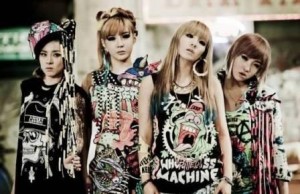
Although the lyrics of 2NE1’s “Ugly” are of self-hate and the want and envy of physical beauty, the MV tells another story of the members rebelling against and defacing society’s generic representations of beauty. When contrasted with the uplifting message of the MV, the lyrics represent not so much a hate for oneself, but a hate for the institution that has caused one to hate oneself. As with “Sixth Sense,” “Ugly” is a direct criticism of the societal structures that have caused women to enslave themselves through conforming to someone else’s definition of the female image.
The lyrics and dance for miss A’s “Bad Girl Good Girl” directly dispute the framework that a woman’s image and sexuality should be in servitude to the expectations of men. This largely relates to prior notions of being trapped and forced to conform to a man’s standards of physical and behavioral appearance. Instead of communicating through visual symbolism, miss A tackles the subject head on by lyrically attacking chauvinistic assumptions of sexually-liberated women.
On the outside, I’m a Bad Girl.
On the inside, I’m a Good Girl.
You don’t even know me well, you only look at me from the outside.
I find your gaze to be funny because you see me as a pitiful girl.
They also mock traditional images of a sexually defiant (bad girl) and a socially accepted (good girl) female through their choreography. In a way, they utilize the tools of oppression to express their message of independence from the conventional boundaries which women are confined by.
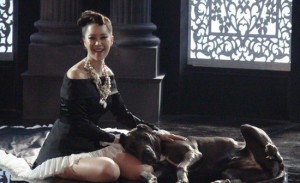 Baek Ji-young raised the concerns of a men’s rights group when her song “Good Boy” compared the subservience of a male partner to that of a dog. Flipping the traditional gender hierarchy on its head, the lyrics of “Good Boy” allows Baek Ji-young to speak from a position of power and superiority to her downtrodden partner. When poor Beast’s Yong Jun-hyung appears to defend the perspective of the male partner, he receives the worst verbal lashing any featured artist has ever had to endure. This is girl power at its most ruthless.
Baek Ji-young raised the concerns of a men’s rights group when her song “Good Boy” compared the subservience of a male partner to that of a dog. Flipping the traditional gender hierarchy on its head, the lyrics of “Good Boy” allows Baek Ji-young to speak from a position of power and superiority to her downtrodden partner. When poor Beast’s Yong Jun-hyung appears to defend the perspective of the male partner, he receives the worst verbal lashing any featured artist has ever had to endure. This is girl power at its most ruthless.
Jun-hyung: I’m just a piece in your well cut out puzzle.
Ji-young: Aren’t you past puberty? This is so immature. Stop blabbering.
Jun-hyung: You’re like a piece of ice under my feet, I’m getting tired of this now.
Ji-young: Huh… I treat you well and this is how you repay your master?
Last but not least, we have Sunny Hill’s “Is the White Horse Coming?” which criticizes the superficial characteristics that a woman looks for in a male partner such as wealth and status. Instead of putting men on blast, the ladies sympathize with and accept men who don’t enjoy the luxury of material and social privileges, which is quite a refreshing contrast from the fiery and hateful tone taken on by their peers in the upper tiers. That’s why Sunny Hill gets my vote for the quirkiest and least manufactured act in K-pop.
I’ll leave it at that. Do you agree with my list, Seoulmates? Have I left anyone off? Please let us know in the comments below!
(2NE1’s Official YouTube Channel, PerformancesLiveHD, Nate, JYP Entertainment, YG Entertainment, Stardom Entertainment, B2M Entertainment, D-Business Entertainment, YMC Entertainment, AB Entertainment, Brand New Music, Nega Network, WS Entertainment)
